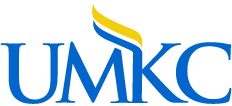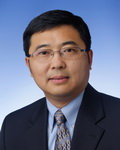The National Institute of Dental and Craniofacial Research, part of the National Institutes of Health, has recently awarded UMKC School of Dentistry a five-year R01 grant totaling ~$1.84 million to develop the next generation, longer-lasting materials for restorative dentistry. Yong Wang, PhD, Professor of Biomaterials, is the principal investigator on the grant.
In general practices, nearly 70% of all operative dentistry is devoted to the replacement of failed restorations. The emphasis on replacement therapy is only expected to grow as people are living longer and with increased age, there is an increased risk for loss of tooth structure due to deep or root caries requiring large restorations. The failure rate is significantly higher for these restorations, with an average replacement time of only 5-7 years.
“The reduced clinical longevity and survival rates can be extremely detrimental to patients because removal of these failed restorations often results in significant increase in cavity volume, and extensive loss of tooth structure,” says Wang. “Over the lifetime of a patient, the additional loss of tooth structure will translate to enlarged and more complex restorations and eventually total tooth loss, which means increased cost to the patient in terms of both time and money. Clearly, there is an urgent public health need for new dental restorative materials with significantly increased service life.”
The premature failure of these restorations has been traced to a breakdown of the bond at the tooth surface/restorative material interface, can be linked to the failure of current materials to consistently seal and adhere to dentin. This new grant will support development of novel restorative materials with new chemistry for robust dentin bonding. This new approach will create strong interfacial interactions which lead to durable bond for restorative materials and thus to enhance the service life of dental restorations.
Zhonghua Peng, a professor of chemistry and Mary P Walker, a professor and prosthodontist are the co-investigators of this five-year grant.


